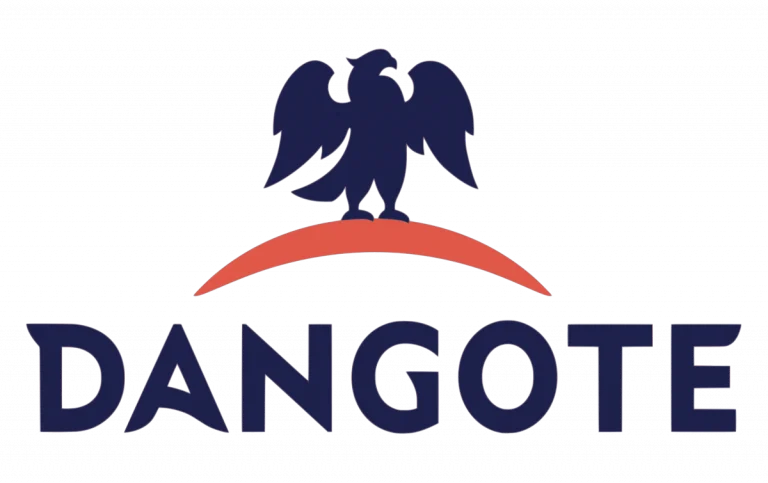Business
FG Records N7.34tn Fiscal Deficit In 11 Months – Report

The Federal Government recorded N7.34tn fiscal deficit between January 2022 and November 2022, according to figures obtained from the Central Bank of Nigeria.
The CBN revealed this in the statement presented by a member of the Monetary Policy Committee, Mike Obadan, at the last MPC meeting in January
Speaking on the fiscal operations of the government, he said, “These have continued to elicit serious concerns considering the growing yearly fiscal deficits and their implications for public debt accumulation (N44.06tn as of September 2022 and excluding nearly N23.0tn Ways and Means Advances) and inflation in view of the Ways and Means Advances financing.
“From January to November 2022, the Federal Government incurred a fiscal deficit of N7.34tn. The projected Federal Government fiscal deficit for 2023 is N11.34tn and it is to be partially financed through deficit financing. This is where the challenge lies for inflation control.”
He said the Nigerian economy was highly challenged in 2022 as reflected by weakening growth performance, high and escalating inflation, foreign exchange market pressure and depreciating exchange rate, ballooning fiscal deficits and public debt and expanding money supply among others.
READ ALSO: cbmOnly 24% Of CBN Anchor Borrowers’ Loans Repaid – IMF
Macroeconomic performance in the country, he said had continued to be impacted by spillovers from the major economies: geopolitical tensions, supply chain disruptions, high inflation, high energy and food prices, tightening financial conditions, among others.
According to an MPC member, Robert Asogwa, “The fiscal sector challenges persist and may even worsen in 2023 with rising debt levels and expected deficit position. In 2022, the huge government expenditures in a regime of low revenues kept the overall debt stock at very high levels.”
Business
NNPCL Announces Restoration Of Escravos-Lagos Pipeline

The Nigerian National Petroleum Company Limited (NNPCL) has announced the complete restoration of the Escravos-Lagos Pipeline System (ELPS) in Warri, Delta State, following the recent explosion on the asset.
The chief corporate communications officer (CCCO) of the nation’s oil company, Andy Odeh, in a statement, said that the pipeline is fully operational, reiterating the company’s resilience and commitment to energy security.
“NNPC Limited is pleased to announce the successful restoration of the Escravos-Lagos Pipeline System (ELPS) in Warri, Delta State.
READ ALSO:Fuel Price Cut: NNPCL GCEO Ojulari Reveals Biggest Beneficiaries
“Following the unexpected explosion on December 10, 2025, we immediately activated our emergency response, deployed coordinated containment measures, and worked tirelessly with multidisciplinary teams to ensure the damaged section was repaired, pressure-tested, and safely recommissioned.
“Today, the pipeline is fully operational, reaffirming our resilience and commitment to energy security. This achievement was made possible through the unwavering support of our host communities, the guidance of regulators, the vigilance of security agencies, and the dedication of our partners and staff.
“Together, we turned a challenging moment into a success story, restoring operations in record time while upholding the highest standards of safety and environmental stewardship.
“As we move forward, NNPC Limited remains steadfast in its pledge to protect our environment, safeguard our communities, and maintain the integrity and reliability of our assets. Thank you for your trust as we continue to power progress for Nigeria and beyond,” the statement read.
Business
Dangote Unveils 10-day Credit Facility For Petrol Station Owners

The Dangote Group has announced a 10-day credit facility backed by a bank guarantee for petrol station owners and dealers, alongside free direct delivery and other incentives, as part of a new supply arrangement.
The company disclosed this in a statement posted on its official X handle on Tuesday, inviting petrol station operators across the country to register to benefit from the offer.
According to the statement, participating dealers will enjoy “a 10-day credit facility backed by a bank guarantee,” with a minimum order requirement of 5,000 litres.
“Our free direct delivery service will commence soon,” the group said, adding that the offer is open to “all petrol station owners and dealers.”
READ ALSO:Dangote Sugar Announces South New CEO
The Dangote Group further called on operators to register their stations to access the supply arrangement.
“Register your petrol stations today to benefit from our competitive gantry price,” the statement read.
The company also disclosed that petrol supplied under the arrangement will be sold at a gantry price of ₦699 per litre.
For enquiries, the group provided the following contact numbers: 0802-347-0470, 0809-324-7070, 0809-324-7071 and 0203.
READ ALSO:Dangote Refinery Dispute: PENGASSAN Suspends Strike After FG Intervention
The announcement follows a recent petrol price adjustment by the Dangote Petroleum Refinery.
The PUNCH earlier reported that the refinery reduced its ex-depot petrol price from ₦828 to ₦699 per litre, representing a ₦129 cut or a 15.58 per cent reduction.
An official of the refinery, who spoke to PUNCH Online on condition of anonymity, confirmed the adjustment, saying, “The refinery has reduced petrol gantry price to ₦699 per litre.”
The new price reportedly took effect on December 11, 2025, marking the 20th petrol price adjustment announced by the refinery this year.
Business
JUST IN: Otedola Sells Shares In Geregu Power For N1trn

Billionaire businessman, Femi Otedola, has sold his majority stake in Geregu Power Plc for N1.088 trillion in a deal financed by a consortium of banks led by Zenith Bank Plc.
The Nigerian Exchange, NGX, made this announcement on Monday.
Otedola’s Amperion Power Distribution Company Ltd reportedly held nearly 80 percent of the power generating company.
READ ALSO:N200b Agric Credit Dispute: Appeal Court Slams NAIC, Upholds First Bank Victory
With this new development, Otedola, Chairman of First Holdco Ltd, parent company of First Bank of Nigeria Plc, will reportedly now concentrate on expanding his interest in the Nigerian banking sector, although he still retains some shares in Geregu.
Otedola is said to currently own 17.01 percent of First Bank — its single largest shareholder since the bank was established in 1894.

 News4 days ago
News4 days agoBREAKING: Anthony Joshua Involved In Road Accident

 News4 days ago
News4 days agoEx-Edo Gov Obaseki Reacts As His Cousin Is Beaten, Stripped

 Politics3 days ago
Politics3 days agoYou’re Not 001 – Wike Rubbishes Claims Of Fubara Being APC Leader In Rivers

 Metro5 days ago
Metro5 days agoObaseki Beaten, Stripped In Edo

 Politics3 days ago
Politics3 days agoWike Speaks On Defecting To APC

 Politics3 days ago
Politics3 days agoJUST IN: INEC Excludes PDP From Ekiti Governorship Election

 News3 days ago
News3 days agoNAF Neutralizes Bandits At Turba Hill, Kachalla Dogo Sule Camps

 Politics3 days ago
Politics3 days agoGo To Hell, You Didn’t Pay My School Fees – Wike Hits Seyi Makinde

 News4 days ago
News4 days agoDoris Ogala: How Pastor Chris Knelt Before Church, Begged For Forgiveness [Video]

 News3 days ago
News3 days agoNigerian Army Finally Reveals Details Of US Military-led Airstrikes In Sokoto




























